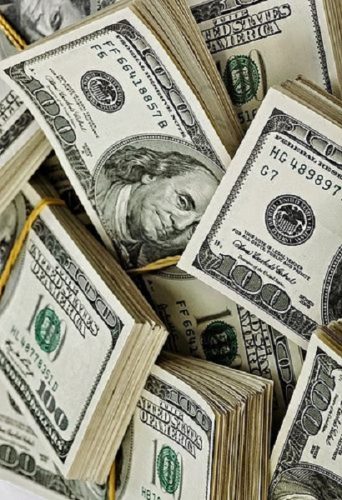Dr. Femi Egbesola, the National President of the Association of Small Business Owners of Nigeria, says the country’s micro, small, and medium businesses are the hardest hit by the current dollar shortage and high diesel prices.
While the Central Bank of Nigeria made it easier for large businesses to obtain dollars from commercial banks, he claimed that MSMEs often struggled and were forced to use the parallel market.
There has been a severe dollar shortage in the country, which has been exacerbated by the volatility typically associated with elections and indirect primaries, when politicians plunder dollars from the black market and commercial banks.
According to information on the CBN’s website as of Friday, the official rate remained at N415.87 per dollar, but in the parallel market, as of Thursday evening, a dollar was worth between N600 and N610.
Despite economists’ concerns that the arbitrage was unsustainable and fueling corruption, the naira has continued to fall in value against the dollar in the parallel market, while the Importers and Exporters window rate has remained relatively stable.
“Micro and small businesses are the worst hit by the dollar scarcity and high cost of diesel,” Egbesola said in a recent telephone interview with our correspondent. We do not have the financial resources to cushion the impact, as do medium and large businesses.
“Because of the CBN’s design, it is easier for medium and large businesses to obtain dollars from banks, leaving us with no choice but to use the black market for forex.” As a result, we have the highest incidence of it. When we compete in the same market with medium and large-scale businesses that pay a lower price, we know we’re up against a major obstacle.
“Second, because the rate fluctuates, you can’t predict your profits.” If you import raw materials to produce, the next time you go back to get dollars, you have to add your capital to your profit in order to get dollars at a new price, which is a death sentence. The implication is that many of us are closing shops because we can’t compete with the imported ones.”
In response to the high cost of diesel, he stated that many imported products were less expensive than those made in the country due to production costs. “That is why some of our members are closing their doors, not just suspending production, but looking for alternative sources of income,” he continued. Approximately 15 to 18% of our members have closed their doors or are experiencing financial difficulties. We rely more on diesel and can only buy small amounts at a time because electricity supply is still unpredictable. You can’t compare us to larger corporations that can buy diesel tankers in bulk. They can get it for a lower price and even on credit, with the option to pay in instalments or at a later date.”
He urged the government to give SMEs, which he described as the engine of growth, more attention.
“Government can’t create jobs; we have to do it ourselves,” he continued. So, how do we create jobs when we can’t even make ends meet, let alone profit? Factory closures and small business closures have resulted in the loss of jobs. It isn’t even close to being equitable.
“Some of our members are moving to neighbouring countries because their electricity and currency are stable, and their policies are friendly to small businesses.”
According to a joint report released in January by the National Bureau of Statistics and the Nigerian Small and Medium Enterprises Development Agency, Nigeria had 39,654,385 MSMEs in December 2020, down from 41,543,028 in 2017. They contributed 4.5 percent of the country’s GDP, according to the report.
ASBON had around 23,000 members in 27 states across the country, according to Egbesola.
“The CBN and SMEDAN classified small businesses as enterprises with working capital, not assets, ranging from N5 million to N50 million, while those with less than N5 million are considered micro-enterprises,” he continued.
“On the other hand, if you have 30 or fewer employees, you’re considered a small business, but if you have more than 30, you’re considered a medium or large company.” Your working capital and employees are thus the two indices.”
![]()


